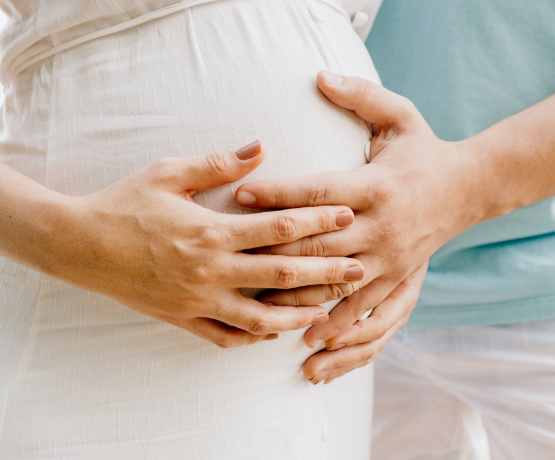Through Positive Psychology and Mindfulness Meditation
As we celebrate the season of Thanksgiving, it’s natural to reflect on the many things we’re grateful for in our lives. Gratitude is a powerful emotion that not only brings joy and contentment but can also have surprising effects on our physical and emotional well-being. The connections among gratitude, positive psychology, mindfulness meditation, and can guide us in how to practice gratitude and potentially increase the chances of getting pregnant.
Gratitude and Positive Psychology
Positive psychology is a field of psychology that focuses on the positive aspects of human experiences, such as happiness, well-being, and flourishing. Gratitude is a central theme in positive psychology, and numerous studies have shown its significant impact on mental health and overall life satisfaction. But can gratitude really affect something as complex and biological as fertility?
Research suggests that there might be a connection between positive emotions, including gratitude, and reproductive health. When you feel grateful, your body releases feel-good neurotransmitters like dopamine and serotonin. These chemicals not only enhance your mood but also have a positive impact on your overall well-being.
Dopamine and serotonin, the neurotransmitters released in the brain, play essential roles in regulating various bodily functions, including mood, emotions, and overall well-being. While these neurotransmitters are not directly linked to fertility, they can indirectly influence reproductive health through their impact on mental and emotional states.
Both dopamine and serotonin aid in reducing stress and anxiety as mood regulators. Chronic stress and high anxiety levels can negatively affect fertility by disrupting hormonal balance and menstrual cycles. When stress and anxiety are reduced, the body can function more optimally, potentially increasing the chances of conception.
High levels of dopamine and serotonin are associated with feelings of happiness and well-being. When you feel emotionally balanced and content, you’re more likely to engage in healthy behaviors, such as maintaining a balanced diet, getting regular exercise, and avoiding harmful habits like smoking and excessive alcohol consumption. These lifestyle factors can positively impact fertility.
Dopamine, in particular, is associated with feelings of pleasure and reward. When dopamine levels are balanced, it can contribute to a healthy sex drive. A positive emotional state and a satisfying sex life are essential components of fertility, as they can increase the frequency of sexual intercourse and improve the chances of conception. Additionally, balanced dopamine and serotonin levels can enhance interpersonal relationships, including your relationship with your partner. Strong and supportive relationships can reduce emotional stress and provide a solid foundation for emotional well-being during the fertility journey.
While dopamine and serotonin can indirectly influence fertility through their effects on mental and emotional well-being, they are not the sole determinants of fertility. Fertility is a complex process influenced by numerous factors, including hormonal balance, reproductive health, genetics, age, and lifestyle choices.
Dr. Christina and I are committed to providing comprehensive care that addresses more than just fertility concerns. Our approach respects conventional medicine with functional and holistic strategies to get to the root cause of your health issues. If you are looking for functional medicine support in your journey to pregnancy click here to watch our on-demand webinar, where we reveal the 4R Fertility Formula™ we use to work with our clients. If what we share sounds good, we invite you to apply for a spot in our high-touch group program that has over an 80% success rate in helping couples conceive naturally.
Mindfulness Meditation and Fertility
Mindfulness meditation is another practice that has gained popularity in recent years for its various health benefits. It involves focusing your attention on the present moment, which can help reduce stress, anxiety, and depression – all of which can negatively affect fertility. Stress, in particular, can disrupt the delicate hormonal balance necessary for conception.
Mindfulness meditation has been shown to lower stress levels, improve emotional regulation, and increase overall well-being. As you become more mindful, you’re better equipped to manage the emotional rollercoaster that often accompanies fertility struggles.
Gratitude, Mindfulness, and Fertility
Gratitude and mindfulness meditation can work together to potentially increase your chances of getting pregnant because both are effective tools for reducing stress. When you practice gratitude, you shift your focus from what you lack to what you have, which can significantly decrease anxiety and worry. Mindfulness meditation, on the other hand, teaches you to acknowledge and accept your thoughts and emotions without judgment, further reducing stress levels.
The journey to parenthood can be emotionally taxing. Gratitude and mindfulness can help you build emotional resilience, allowing you to cope more effectively with the ups and downs of fertility treatments and the waiting game.
Practicing gratitude can enhance your relationships, including your relationship with your partner. A strong support system is imperative during fertility challenges, and gratitude can help you maintain a positive and supportive connection.
Finally, fertility issues often make individuals feel powerless. Practicing gratitude and mindfulness can help you regain a sense of control over your emotional well-being and mindset, which can positively influence your fertility journey.
How to Cultivate Gratitude and Mindfulness
Now that we understand the potential benefits of gratitude and mindfulness for fertility, here are some practical steps to incorporate them into your daily life:
Keep a Gratitude Journal
Each day, write down three things you’re grateful for. They can be simple pleasures or profound moments. Regularly reflecting on these can boost your overall happiness.
Practice Mindfulness Meditation
Start with short sessions and gradually increase their duration as you become more comfortable. You can find guided meditation apps or classes to help you get started.
Conclusion
Amidst the season of Thanksgiving, remember that gratitude is a powerful tool that can positively impact your fertility journey. By combining gratitude with mindfulness meditation and adopting a positive psychology perspective, you may find increased emotional well-being, reduced stress, and a greater sense of control over your fertility journey. While there are no guarantees when it comes to pregnancy, these practices can offer valuable support during this challenging time and contribute to your overall well-being. So, this Thanksgiving, take a moment to reflect on the many things you’re grateful for, and let the power of gratitude work its magic on your journey to parenthood.








